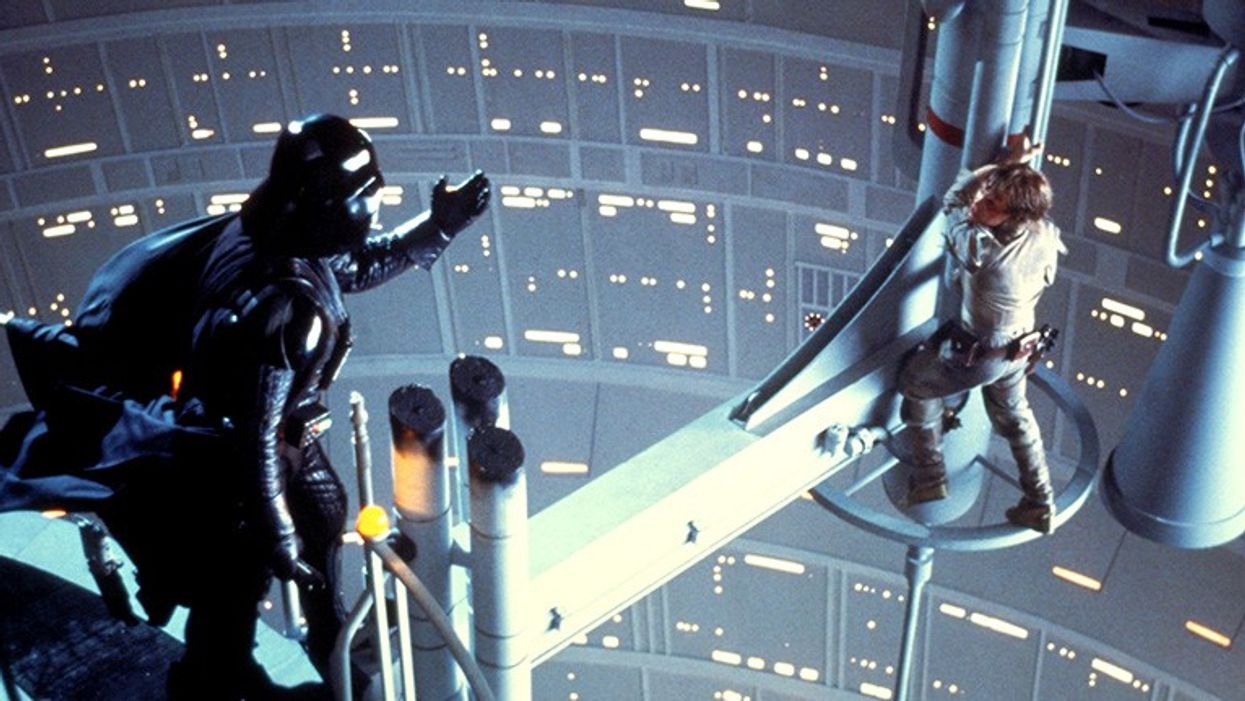How to Write Your Script's Climax
Learning how to write a climax will help keep your script tight and exciting. But how do you do it?

'Star Wars: The Empire Strikes Back'
When you're writing your screenplay you'll find mapping things out based on story structure can be cathartic. It eases you into each scene and provides a story map for where you are going.
For me, writing the climax is the most satisfying part of screenwriting. You get to anticipate the audience. Surprise them. And it means you're almost done.
But how can you write those scenes with confidence and learn how to master writing the climax?
Today, we'll learn how to write a climax in your script and talk about the basic tenents that can push your climax over the edge.
Let's go.
How to Write a Climax
Many people cite the climax as their favorite part of a movie or television episode. But what does the climax truly mean?
A climax is the most intense, exciting, or important point of a movie or television show. It marks the amalgamation of all the scenes that came before it and includes most of the payoffs within the film or episode.
When you're writing the climax there are certain elements you want to keep in mind no matter what genre you're writing.
The climax may involve:
1. Expensive set-pieces
Climaxes are usually where all the money is spent. They have set pieces that are huge. Think about what has never been done before? Where can you do something that blows an audience away and showcases your unique talents? How and you amp up your wow factor?
Example: Think the helicopter chase from Mission Impossible: Fallout
2. Outrageous stunts
As a Jackie Chan fan, I knew the best stunts came at the end of the movie. You can write anything and let the coordinators figure it out later. So write something nuts. It can even be as nuts as just getting hit by a bus, like in Mean Girls. Just make it memorable.
Example: Think the ending on Police Story
3. Intense emotional payoffs
Climaxes don't only happen in action movies. And no matter what your story is about either, you need people juked ed at the end. That means giving them all the emotions they can handle. In a drama, that might be a final farewell or just the reunion of two characters kept apart. You want the emotions to mix with both points above to make the story exciting.
Example: Mad Men's last call between Betty and Don
The beats of the climax
Every climax has specific story beats that make them clue the audience in that we're approaching the end. Take a look at these examples from our Beat Sheet.
Story Beats:
- Rock Bottom
What's the lowest point for your character?
- The Bounce Back
How does your protagonist face the odds to persevere?
- Triumphs
How does your character win out against the odds? Or maybe they lose...
Climax examples
While these beats don't have to happen in the climax, I thought it would be good to look at some examples as you structure your climaxes. When you think about your climax, you want to approach it like writing any other scene. There should be conflict, drama, and intrigue. But this time, since it's at the end of your movie or episode, you want it to pay off what we've seen previously.
So, in something like Breaking Bad S05 E16, when Walt takes on the meth-making gang of white supremacists, you want to understand everything he's set up with the machine gun, car, and remote control. We also know his continued losses to this gang and his determination to make them pay.
His triumph here comes at a great coast, but it frees his best friend.
Again, this doesn't all have to be action. One of my favorite movies of all time is Young Adult.
The climax of that underrated film happens at a baby shower, where Mavis tries to get the father of the baby -- and her old crush -- to leave the city with her. Here, we get a huge reveal of who the self-centered Mavis is and why she behaves this way. We find out about the trauma she has endured and actually begin to feel sorry for her.
In this drama, the bounce back and triumph come a scene later: She finds the adulation she's always wanted and therefore is able to revert to her high school mindset once again.
Summing up how to write climaxes in movies and tv
Now that you understand what goes into the climax, it's time for you to assess your own story and see what it needs. As you approach your screenplay, ask yourself what character moments you can pay off to see the arc.
These answers should be in your character's development.
If you're struggling for a place for the climax to be set, go back to act one and see if you can plant a location and then pay it off later. And if you're having trouble writing the final pages, maybe scrolls through our action genre and comedy genre pages to see how the masters do it.
Now get out there and get writing!
What's next? How to Write a Screenplay in 10 Weeks!
Screenwriting is hard. But to become a filmmaker, you need to learn scriptwriting to master storytelling. We'll give you free lessons.
Let's go!
- The Ending of ‘Arrival’ Explained ›
- How to Write an Action Movie Screenplay ›
- Intense Movie Scenes ›
- Catharsis Definition ›

 No Film School's coverage of
No Film School's coverage of 









